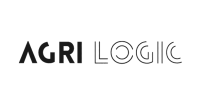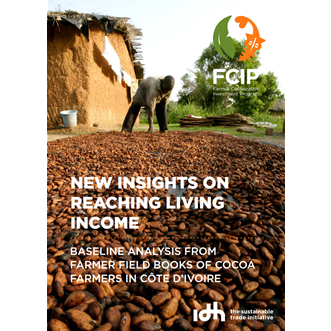Assessment of environmental and social risks in the wider cashew sector one trading company specifically. The due diligence was performed within a 2 week timeframe, including review of company documents, desk research and field visits in two African countries.

Rainforest Alliance Living Income Tool
On request of Rainforest Alliance, Agri-Logic developed a tool for its cocoa certification programme that allows certificate holders to quickly and reliably estimate the gap to the living income of farmers in its supply chain. The model in the tool was developed from a large set of Farmer Field Book time-series data from Ghana and Cote d’Ivoire. The model relies on the very strong relationship between a farmer’s production level and income. Tool users need only add data on 5 variables for each farmer to the tool. The 5 variables are in most instances already available in existing datasets of the certificate holder and as such require no additional data collection. Reliability testing showed the tool to be highly accurate, erring no more than a single percentage point when assigning farmers to above and below the living income categories. This tool is currently being rolled by Rainforest Alliance to cocoa certificate holders who wish to report on living income development.

Assessment of the impact of certification on Ivorian cocoa farmers for Rainforest Alliance
What are the impacts of certification for cocoa farmers in Côte d’Ivoire? In an impact assessment for Rainforest Alliance Agri-Logic compared certified cocoa farmers with non-certified farmers. The assessment focused on comparing key outcomes: production, yields, profitability and income at farmer level as well as comparing the driving factors behind these outcomes and the contribution of certification to these outcomes.
Key findings of the impact assessment:
- Certified farmers show a greater reduction in the use of biocides that fall in the Highly Hazardous Pesticides group as defined by the Pesticide Action Network.
- Certified farmers are more likely to use fertilisers. Their higher rate of savings provides them with a greater capacity to invest. Nevertheless, their choice of fertiliser material is equally skewed towards phosphorus-based products and they show a similar nutrient imbalance with far too little nitrogen being applied as do non-certified farmers.
- The hours of work on carried out by minors is significantly lower on certified farms, after controlling for other factors, certified farmers use 33% less working hours made by minors. While the data does not allow the distinction between child labour and child work as defined by the International Organization of Labour (ILO), we conclude that the risk at child labour is lower at certified farms.
- Certified farmers dedicate fewer hours to activities that are likely to result in better yields such as pruning, collecting diseased pods and pruning of shade trees.
- Certified farmers are more likely to use formal banking services and tend to have lower debt levels and greater savings than non-certified farmers. These are of course desirable phenomena in their own right, but do not make certified farmers more profitable. Consequently, the incidence of poverty, whether measured as the share of farmers living below the international poverty line or the living income benchmark does not differ significantly between certified and non-certified farmers.
- Cocoa production drives much of the income that farmers obtain and without meaningful changes in farmers’ nutrient management (fertilising and using an appropriate type of fertiliser) we do not expect to see much change in the reduction of poverty among cocoa farmers. This phenomenon helps to explain why despite years of investment in cocoa-growing communities change on the ground has been limited.



